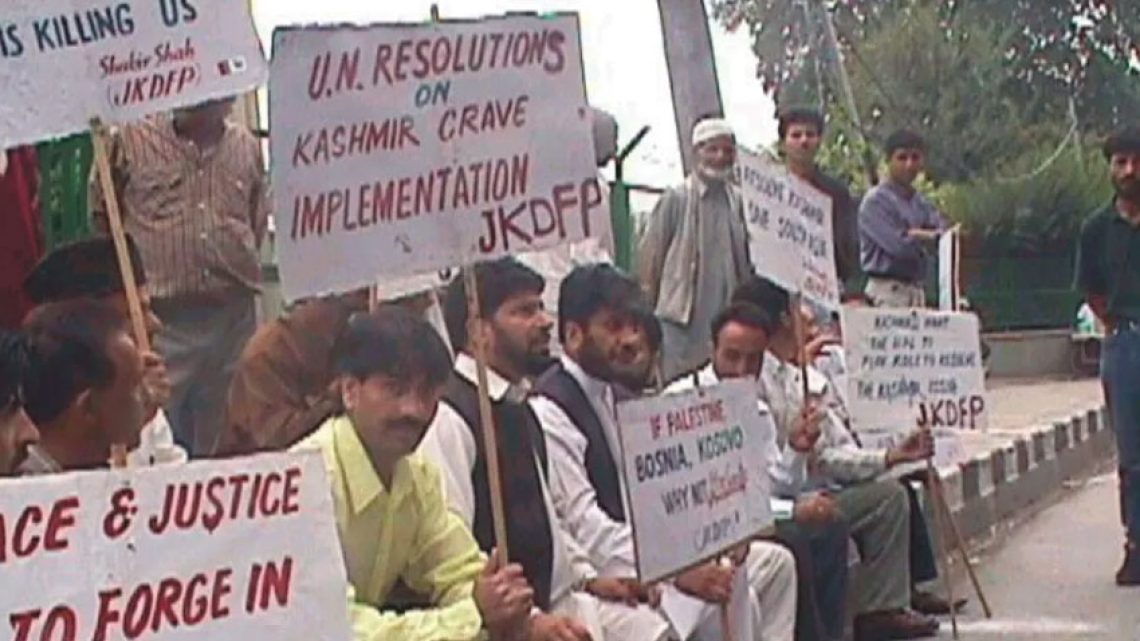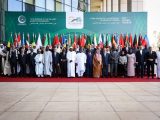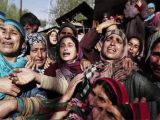
India’s Banning of Political Parties in IIOJK: A Move to Suppress Kashmiri Voices
May 29, 2024In a controversial and aggressive maneuver, the Indian government under Narendra Modi has banned eight political parties in Indian Illegally Occupied Jammu and Kashmir (IIOJK). This decision is part of a broader strategy to suppress the Kashmiris’ quest for self-determination and freedom from Indian rule. The banned parties include the All Parties Hurriyat Conference (APHC), Jamaat-e-Islami, Muslim League, Muslim Conference, J&K People’s Freedom League, Tehreek-e-Hurriyat, Jammu and Kashmir Liberation Front (JKLF), and J&K National Front.
The banning of these political entities marks a significant escalation in India’s illegal moves to stifle political dissent in the region. These parties have played pivotal roles in advocating for the rights and freedoms of the Kashmiri people and opposing Indian occupation. The Modi administration’s actions are seen as a direct attack on the political identity and democratic rights of the Kashmiri Muslim majority in IIOJK.
This move is not an isolated incident but part of a series of measures taken since August 5, 2019, when the Indian government revoked the special autonomy of Jammu and Kashmir. Since then, there has been a concerted effort to alter the region’s demographics and political landscape. These measures include issuing domicile certificates to millions of non-Kashmiris, changing land laws to enable outsiders to purchase property in IIOJK, redrawing political constituencies to favor Hindu populations, and granting voting rights to over 2.5 million non-Kashmiris.
The Modi government’s approach is perceived as an attempt to impose a Hindu nationalist agenda in a Muslim-majority region. This agenda is further evident in the systematic political victimization and human rights violations (HRVs) against the Kashmiri people. The recent banning of political parties is another tactic aimed at erasing the Muslim identity from IIOJK and silencing dissenting voices.
Critics argue that these actions are in direct violation of United Nations Commission for India and Pakistan (UNCIP) resolutions and international law. The intention behind these moves is seen as paving the way for installing a BJP-led administration in IIOJK to further the party’s Hindutva policies. By banning pro-freedom organizations, the Indian government aims to quash any opposition and present a façade of normalcy to the international community and human rights organizations, which have consistently rejected India’s claims of restoring normalcy in the region.
The international community’s response has been critical, yet insufficient in compelling India to reconsider its policies. There is a growing call for global powers and human rights organizations to exert pressure on India to lift the ban on these political parties and release detained political leaders. The restoration of political freedoms in IIOJK is seen as essential for any meaningful dialogue and resolution of the Kashmir dispute in line with the wishes of the Kashmiri people.
The actions of the Modi government in IIOJK highlight a grave human rights crisis that necessitates urgent international intervention. The ongoing suppression of Kashmiri voices not only undermines the region’s democratic framework but also threatens the peace and stability of the entire South Asian region. It is imperative that the global community takes a firm stand to ensure that the basic rights of the Kashmiri people are upheld and that their voices are not silenced.

